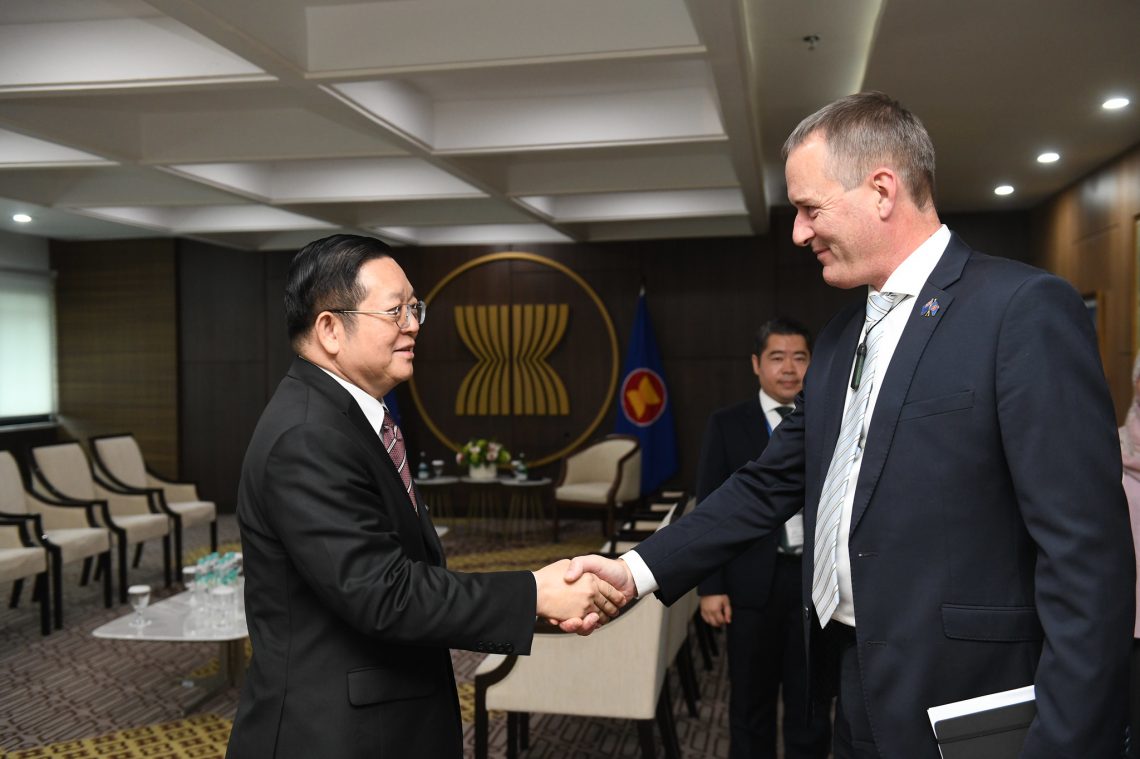The ASEAN Secretary-General has recently emphasized the need to strengthen the ASEAN economic partnership with New Zealand, aiming to unlock greater economic opportunities and enhance regional stability. This strategic dialogue comes at a time when both regions are seeking to rebuild and future-proof their economies post-pandemic. As global uncertainties mount, reinforcing ties between Southeast Asia and trusted partners like New Zealand becomes crucial for shared growth.
In this article, we explore the scope of this partnership, recent developments, and the long-term economic benefits for both sides. We also look into potential sectors of collaboration and the role of regional frameworks in facilitating deeper engagement.
The Strategic Importance of ASEAN-New Zealand Ties
ASEAN and New Zealand have enjoyed diplomatic relations for over four decades. However, the recent focus on economic partnership signals a new era of collaboration. The ASEAN Secretary-General’s recent visit to New Zealand aimed to elevate this relationship from general diplomacy to a strategic economic engagement.
New Zealand sees ASEAN not only as a growing market with over 650 million consumers but also as a crucial partner in ensuring Indo-Pacific stability. In turn, ASEAN views New Zealand as a reliable, rules-based economy that can offer investment, technology, and expertise.
This partnership is particularly important amid global economic realignments. The U.S.-China trade tensions, disruptions from climate change, and the rise of digital economies mean that smaller but agile economies like New Zealand and integrated blocs like ASEAN can offer each other stability and new growth frontiers.
Key Areas of Economic Collaboration
The ASEAN economic partnership with New Zealand spans several high-impact sectors, which are increasingly being prioritized in formal discussions and frameworks. These include:
1. Green Economy and Sustainability
With both regions committed to climate goals, the green economy has emerged as a top agenda. New Zealand's expertise in sustainable agriculture, renewable energy, and water management makes it an ideal partner for ASEAN countries facing climate-related challenges. The partnership is expected to include technology transfer, joint ventures, and green finance.
2. Education and Digital Economy
New Zealand has long been a destination for ASEAN students, and now both parties are looking to expand collaboration in education technology and digital skills development. Through bilateral initiatives, ASEAN member states hope to tap into New Zealand’s digital economy playbook—particularly in cybersecurity, e-commerce frameworks, and inclusive innovation.
3. Trade and Investment
Trade remains the bedrock of ASEAN-New Zealand ties. As part of the ASEAN-Australia-New Zealand Free Trade Area (AANZFTA), both regions have already enjoyed zero-tariff trade on many goods. However, the current talks aim to go beyond tariffs, focusing on streamlining supply chains, reducing non-tariff barriers, and increasing investment flows—especially in infrastructure, healthcare, and tech.
Regional Frameworks and Multilateral Support
The push to strengthen the ASEAN economic partnership with New Zealand also aligns with several multilateral platforms that both parties are part of. These include:
- AANZFTA: A cornerstone trade agreement that continues to evolve, with updates to e-commerce and services chapters currently underway.
- RCEP (Regional Comprehensive Economic Partnership): As the world’s largest free trade agreement, RCEP offers a broader framework for New Zealand and ASEAN to work on cross-cutting issues like intellectual property rights, dispute resolution, and digital trade.
- ASEAN Outlook on the Indo-Pacific (AOIP): New Zealand supports AOIP, particularly its focus on connectivity, maritime cooperation, and sustainable development.
Multilateral backing not only strengthens bilateral efforts but also ensures that the partnership remains robust in the face of political changes or economic disruptions.
Long-Term Economic Impacts and Future Outlook
As this economic partnership deepens, the long-term impacts are expected to be substantial:
- For ASEAN:
- Increased access to high-quality goods and services from New Zealand.
- Enhanced capabilities in sustainability, digital governance, and food security.
- New job opportunities in green tech, education, and digital services.
- For New Zealand:
- Greater market access to one of the fastest-growing regions.
- Opportunities to diversify its trade away from overdependence on China.
- A chance to contribute to and benefit from regional supply chain integration.
The ASEAN Secretary-General has also emphasized the importance of people-to-people connections, suggesting that soft diplomacy through youth exchanges, tourism, and cultural programs will complement the hard economics of trade and investment.
H2: Challenges and Considerations
Despite the optimism, the partnership is not without its challenges:
- Regulatory differences among ASEAN members can create hurdles in implementing uniform agreements.
- Geopolitical tensions in the Indo-Pacific may complicate multilateral coordination.
- Domestic politics in member countries can shift priorities or delay trade deals.
However, both ASEAN and New Zealand are aware of these risks and appear committed to overcoming them through dialogue, capacity-building, and flexible arrangements.
Conclusion
The decision to reinforce the ASEAN economic partnership with New Zealand is timely, strategic, and mutually beneficial. As both regions navigate a rapidly changing global landscape, deeper cooperation will not only enhance economic resilience but also promote sustainable, inclusive development. This is more than just trade—it's about building a future-ready regional order based on trust, mutual respect, and shared prosperity.
Read More






 Friday, 27-02-26
Friday, 27-02-26







